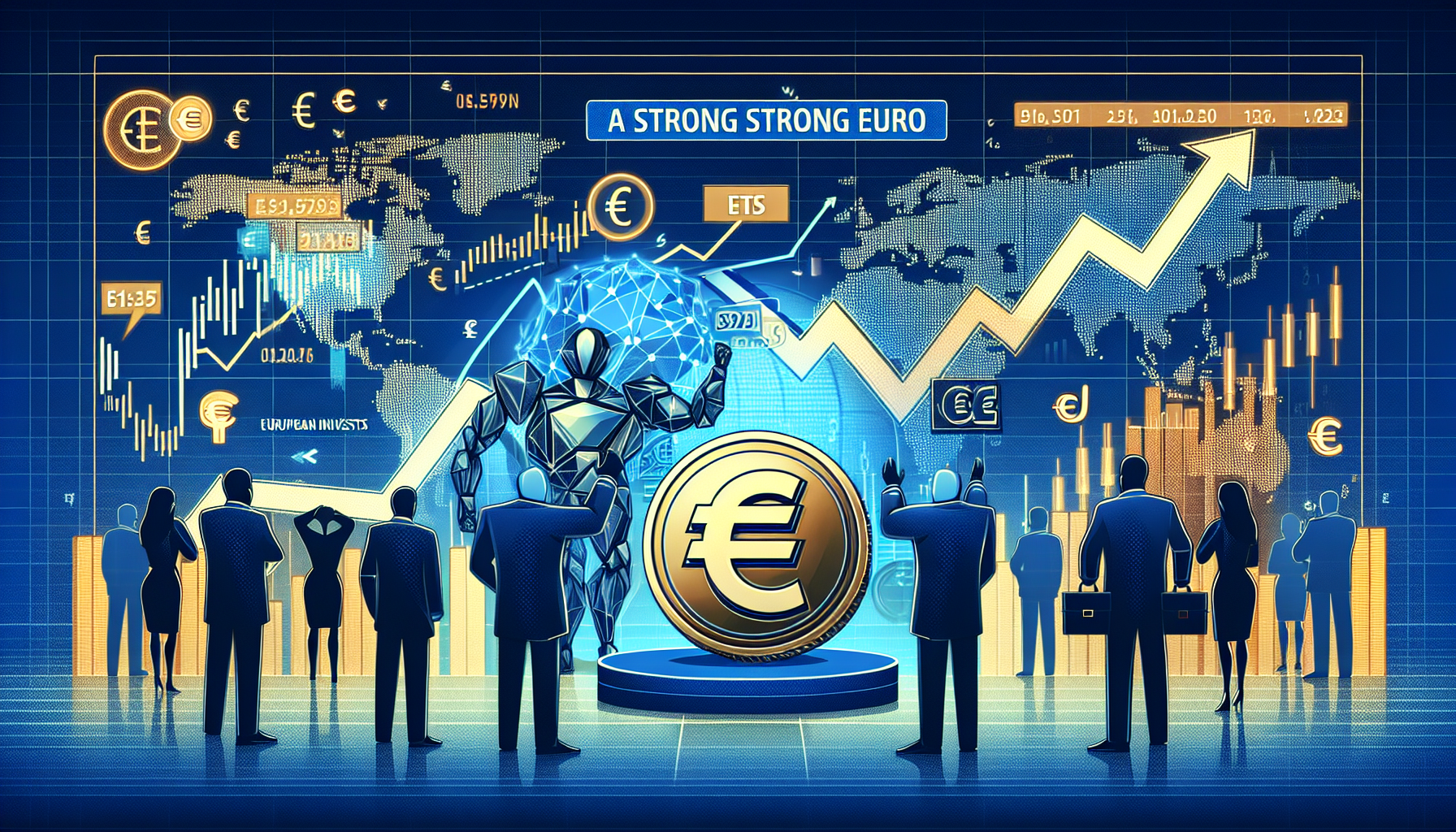How the Strong Euro Impacts ETF Investors: A Deep Dive into MSCI World Index Performance
The MSCI World Index, a benchmark for global equity markets, has long been a favorite among ETF investors seeking diversified exposure to international stocks. However, 2023 has proven to be a challenging year for these investors, with the index down nearly 4%. One of the key factors behind this underperformance is the strengthening Euro, which has turned a once-favorable condition into a double-edged sword. This article explores the dynamics of the MSCI World Index, the role of currency fluctuations, and what this means for ETF investors moving forward.

The MSCI World Index: A Global Investment Benchmark
The MSCI World Index is a widely followed equity index that tracks the performance of large and mid-cap stocks across 23 developed markets. It includes companies from the United States, Europe, Japan, and other advanced economies, making it a popular choice for investors looking to diversify their portfolios geographically. ETFs that track the MSCI World Index have gained significant traction due to their low costs, transparency, and ease of access.
However, the index's performance is influenced by a variety of factors, including economic growth, corporate earnings, and currency movements. In 2023, the latter has played a particularly significant role in shaping returns for ETF investors.
The Euro's Rise: A Double-Edged Sword
For European investors, the Euro's strength has been a mixed blessing. On one hand, a strong Euro can signal confidence in the European economy and reduce the cost of imports. On the other hand, it can erode the returns of international investments, particularly those denominated in weaker currencies like the US Dollar.
When the Euro appreciates against other currencies, the value of foreign assets held by European investors decreases when converted back into Euros. This currency translation effect has been a major headwind for ETFs tracking the MSCI World Index, as a significant portion of the index is composed of US-based companies. As the Dollar weakens relative to the Euro, the returns from these investments are diminished.

Why Currency Movements Matter for ETF Investors
Currency fluctuations can have a profound impact on the returns of international investments. For example, if an ETF holds US stocks and the Dollar weakens against the Euro, the value of those holdings in Euro terms will decline, even if the stock prices remain unchanged. This is particularly relevant for European investors in MSCI World ETFs, as the index has a heavy weighting toward US equities.
In 2023, the Euro has strengthened significantly against the Dollar, driven by factors such as diverging monetary policies between the European Central Bank (ECB) and the Federal Reserve, as well as improved economic prospects in the Eurozone. While this has been positive for European consumers and businesses, it has weighed on the performance of MSCI World ETFs.
The Impact on ETF Returns
The strong Euro has contributed to the MSCI World Index's underperformance this year, with returns for European ETF investors lagging behind their US counterparts. For example, while the index may have posted modest gains in Dollar terms, the currency translation effect has pushed returns into negative territory for Euro-based investors.
This dynamic highlights the importance of considering currency risk when investing in international ETFs. While diversification across geographies can reduce portfolio volatility, it also exposes investors to the vagaries of currency markets. For those heavily invested in MSCI World ETFs, the Euro's strength has been a significant drag on performance.
Hedging Strategies: A Potential Solution
One way to mitigate the impact of currency fluctuations is through hedging. Currency-hedged ETFs are designed to neutralize the effects of exchange rate movements, allowing investors to focus solely on the underlying asset performance. For example, a Euro-hedged MSCI World ETF would aim to deliver returns that closely mirror the index's performance in Dollar terms, regardless of the Euro-Dollar exchange rate.
However, hedging is not without its drawbacks. It can increase costs, reduce liquidity, and introduce additional complexity. Moreover, hedging strategies are not always effective, particularly in volatile or unpredictable currency markets. As such, investors must weigh the potential benefits against the risks and costs.
Looking Ahead: What This Means for the Market
The interplay between the MSCI World Index and currency markets is likely to remain a key theme in the coming weeks. Investors should closely monitor developments in the Eurozone and the United States, as well as central bank policies, which will continue to influence currency movements.
If the Euro maintains its strength, European investors in MSCI World ETFs may need to adjust their strategies to account for ongoing currency headwinds. This could involve shifting to currency-hedged ETFs, reallocating to more domestically focused investments, or exploring alternative asset classes.
Conclusion: Navigating a Challenging Landscape
The strong Euro has created a challenging environment for European ETF investors, particularly those with exposure to the MSCI World Index. While the index offers broad diversification and access to global markets, currency fluctuations have eroded returns in 2023. As the market evolves, investors must remain vigilant and adapt their strategies to navigate this complex landscape.
In the coming weeks, the performance of the MSCI World Index will depend on a range of factors, including corporate earnings, economic data, and central bank policies. Currency markets will continue to play a critical role, and investors should be prepared for potential volatility. By understanding the dynamics at play and considering hedging strategies, ETF investors can better position themselves to achieve their financial goals in an uncertain market.

